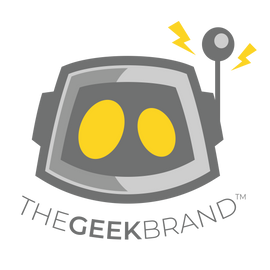From the fictional realms of Hollywood's Netflix productions to the real-world applications in neuroscience and healthcare, artificial intelligence (AI) has rapidly become an integral part of our lives. This article delves into the fascinating intersection of AI, public health, and popular culture, as explored by the Wired30 Summit.
AI in the Limelight: From "Deadpool" to "The Monitor"
AI's cinematic representation has been evolving, with a shift from the dystopian depictions towards a more nuanced exploration of this technology. Netflix, a titan in the world of streaming TV and movies, has been at the forefront of this evolution. It has produced a variety of content exploring AI, from the offbeat humor of "Deadpool" to the introspective drama of "The Monitor".
Even the Oscars, the apex of Hollywood’s recognition, have begun to acknowledge the growing significance of AI in film. AI has infiltrated the glamour and glitz of the Oscars, both in the form of AI-generated scripts and in the themes of the nominated films.
AI on the Slopes: Climate Change and Skiing
AI's influence extends beyond the film industry and into the world of sports, particularly skiing. Using AI to analyze climate change's impact on snowfall patterns, researchers can better understand the future of winter sports. This comes at a time when global warming threatens the very existence of skiing, turning it from a popular pastime into a luxury few can afford.
AI and Your Brain: Neuroscience, Memory, and Aging
AI's impact on neuroscience is perhaps its most profound. AI can help doctors understand the intricate workings of our brains and behavior. By analyzing vast amounts of data, AI can predict diseases, improve healthcare, and provide insights into the aging process.
Moreover, AI can even help us understand and improve memory. This could revolutionize the treatment of memory-related disorders, like Alzheimer's, and provide a better quality of life for our aging population.
AI and Public Health: A New Era of Medicine
Public health, a field traditionally reliant on human expertise and instinct, is being transformed by AI. AI can diagnose diseases, personalize medicine, and even predict epidemics.
AI is also redefining the doctor-patient relationship. With AI, doctors can provide more accurate diagnoses and treatment plans, improving overall healthcare outcomes. This has significant implications for public health, offering the potential to reduce the burden on our healthcare systems and improve patient care.
Conclusion
From the silver screen to the snowy slopes, the doctor's office to the neuroscience lab, AI is reshaping our world. As we continue to explore and harness this powerful technology, one thing is certain: the future of AI is as exciting as it is unpredictable.
So, whether you're a geeky Netflix junkie or a public health professional, a neuroscience enthusiast or an aging skier worried about global warming, AI is likely to play an increasingly significant role in your life. And if the Wired30 Summit is anything to go by, that's something worth getting excited about.




















